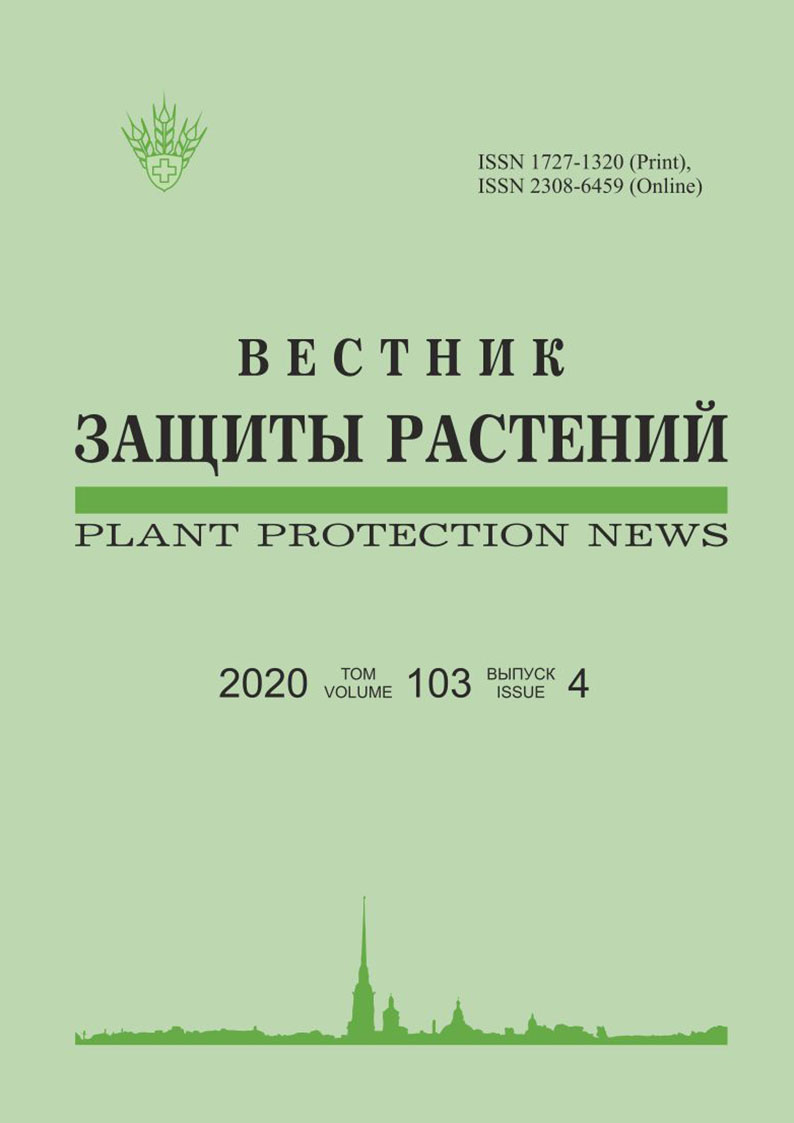The effect of the different species of the entomopathogenic fungi from genera Akanthomyces and Lecanicillium on the behavioral responses and the viability of the Trialeurodes vaporariorum
Keywords:
behavioral responses, Aleyrodidae, entomopathogens, volatile organic compounds, virulenceAbstract
The effect of the spores of Akanthomyces and Lecanicillium species on the behavioral responses of the greenhouse whitefly Trialeurodes vaporariorum has been studied. Three strains of the species Akanthomyces muscarius, Lecanicillium pissodis and Lecanicillium dimorphum demonstrated a strong repellency and negative effect for the adult fecundity, causing the decrease of the eggs number up to 70 % in comparison with control. Two other strains of species L. psalliotae and A. muscarius did not affect the behavioral responses and fecundity of whitefly. All studied strains showed high virulence against whitefly larvae at concentration of 5 mln spores/ml causing mortalily rate between 76 and 98 % on the 7th day after treatment. The virulence of species L. dimorphum and L. pissodis was comparable with the virulence of the species A. muscarius, they are traditionally used to produce biopreparations against whitefly. They are promising for the whitefly control. Apparently, the behavioral responses of these pests should be considered for the evaluation of the pathogenic potential of entomopathogenic fungi.



